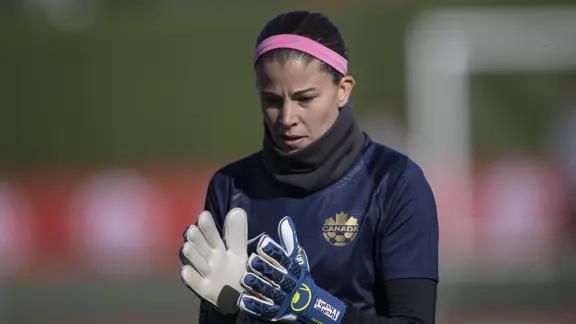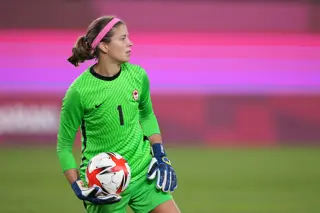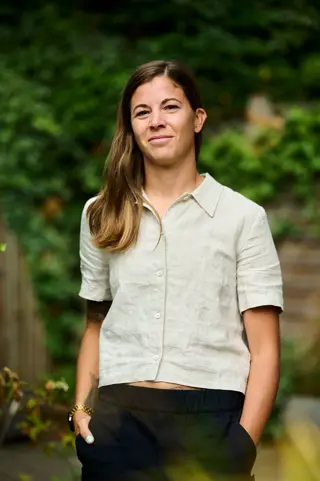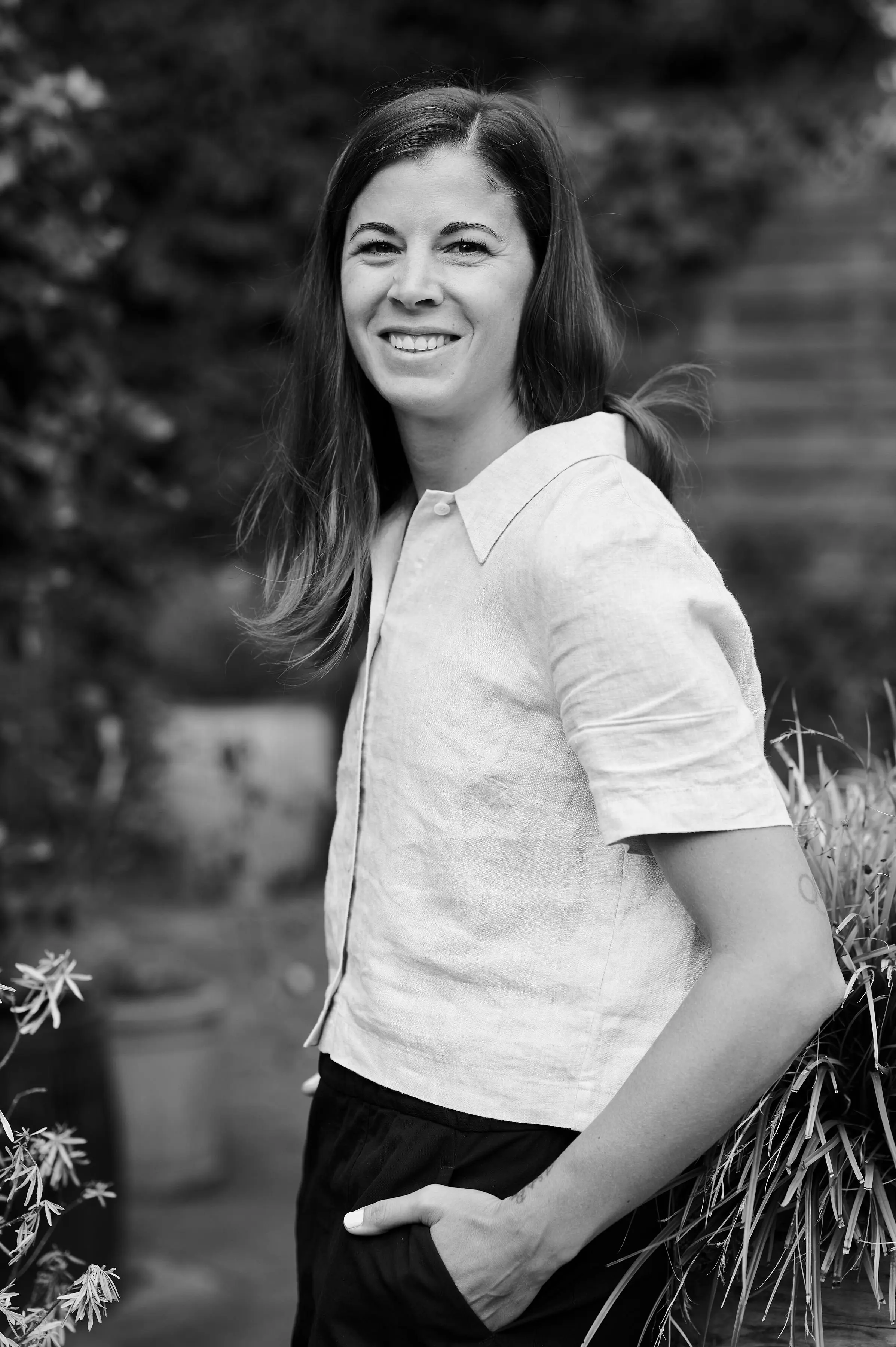Player Op-Ed
Steph Labbe: "We must make post-tournament mental health a priority"

About the author
Former Canada goalkeeper and Olympic Champion Steph Labbe is a member of FIFPRO’s Mental Health Taskforce.
By Steph Labbe
I had three big moments in my career where my mental health challenged me and made me the person I am today – someone stronger for going through these experiences.
The first was in 2012 where I hit a breaking point. I lost my confidence, my self-worth, and my joy in the game of football. I went into a stage of depression. At the time, I didn't have the words to articulate what I was going through. All I knew was that I was in a dark place, and I wasn't enjoying what I was doing.
I needed to take a step back and make a decision that was going to be the best for me in the long-run. I decided to step away from the national team.
At the time, I didn’t understand the weight of that decision. All I knew was that I wasn't in a good place and I had to take myself out of an environment that wasn’t conducive to my mental health.
I took a year away from the national team and it was another eight months after that before I got another call-back, so I was out of the national team program for nearly two years.
It was a time where I was able to focus on my own mental wellbeing and get back to being the confident person I could be on and off the field. I found joy in the game again, and true belief in myself. I set small goals and built up my support network. I consistently come back to these teachings.
The second major milestone was coming out of the 2016 Olympics. I went from a complete high of winning an Olympic bronze medal to going back to my club where I sat on the bench for the rest of the season. My recovery time after the Olympics was less than a week, barely enough time to get over jet lag, never mind being physically or mentally recovered to reset for the next task.
Going from that complete high to a complete low without any room for recovery shifted my wellbeing. I lost a lot of self-value; in my short time at home it was all about the medal, and it felt like I was entirely defined by the medal. I was proud, but I began to lose myself in the constant requests. That swept me into a dark place again.
I slowly found vulnerability and strength in sharing my story. I connected with yoga and meditation to ground myself – more tools for my resilience toolbox.
The third was the Tokyo Olympics in 2021. That was a whole new experience for me. The second year of a pandemic compounded with uncertainty, mind games a lot of athletes had to endure, and a major injury in the first game of the tournament meant that my mental bucket was filling-up quickly.
I performed very well at the Olympics, with an adrenaline filled quarter-final ending with two final saves in a shoot-out to send us into the semi-final. The adrenaline rush from that game, paired with the stress and anxiety that I had been carrying, brought on a lot of panic attacks and increased anxiety for the rest of the tournament.

I was in a constant state of over-activation. This was something I had never experienced before in my life. I was performing incredibly well on the field, and yet off the field, my mind was in a state of panic.
After winning the gold, I went back to lay in my room with the lights off while my team-mates went out to celebrate. This behaviour continued off the field for weeks after.
I went back to what has helped me in the past: nature, time with my family and friends, and the strength of saying ‘no’ to various media requests. This empowered me to take control of my health when I felt like it was spiralling out of control.
When I started telling my story back in 2017, I slowly started to understand the global impact it was having on others. Storytelling is incredibly powerful. The more we share our stories, the more we can connect with people of all different backgrounds and cultures. Authenticity and vulnerability doesn’t judge, it absolves barriers of all kinds.
In February, I reached out to FIFPRO about creating a structured support group for players from all national teams to have a safe space to share their stories and learn from others. Connecting with everyone on the Mental Health Taskforce has helped me understand different perspectives, especially when it came to post-tournament mental health.

There are so many different narratives that come into play with post-tournament mental health. You can spend four years leading up to this one pinnacle moment – the World Cup, the Olympics, the EUROs – then suddenly it stops, and you think: ‘What’s next?’
You come out of a month of spending every waking hour with a group of people that you have a clear shared vision and goal, share incredible experiences with, either high or low. The majority of teams don’t even reach that goal. Only one team wins.
You then go back to a completely different routine, with different people, and different expectations. It can feel isolating and lonely. There can be a lack of motivation. It can be emotionally draining.
Then there’s analysing your own performance: whether you had a perceived good tournament, or whether you didn’t, and the expectations – or lack of expectations – that are placed on you at your club when you're finished with the national team.
That period of two weeks after a tournament is crucial: it’s when players need to take time to heal and recover, not just physically, but mentally as well. Having resources in place so that players, coaches, team-mates, and even friends and family, know what to expect during that time is so important.
From my own personal experience, I wasn’t educated on the potential ‘post tournament blues’ and the incredible highs and lows that come with those emotions. I was already in a challenging space where I felt like it was all just too much to reach out and accept help.
If I had this understanding beforehand, I believe I could have been more prepared, with the knowledge and understanding of signs. I wouldn’t have had to heal alone.
I reached out to FIFPRO about creating a structured support group for players from all national teams to have a safe space to share their stories and learn from others.
This is something athletes of all genders, all backgrounds, go through. So, it’s important to allow them to have that space to have their own narrative of what they're going through.
From the outside, we often see one perspective of an athlete through the media and we assume they are in a good space. But even when I experienced success, it didn’t always equate to happiness.
By encouraging players to share their stories, we are breaking the stigma of mental health. Talking about mental health doesn’t mean you’re weak – in fact, this vulnerability shows self-awareness, and incredible strength and courage.
The post-tournament mental health guide is an important resource to keep moving the conversation forward. Whether you're a player coming out of a tournament or you're the team-mate of somebody who is, this guide covers a lot of angles.
Even if you feel it doesn’t apply to you directly, it might apply to the person next to you, and support systems are key factors to recovery for everyone.
Everyone has a different story. The more we can help each other come out of pinnacle moments in our careers in a healthier mind space, the better chance we have of being our best selves both on and off the field.
